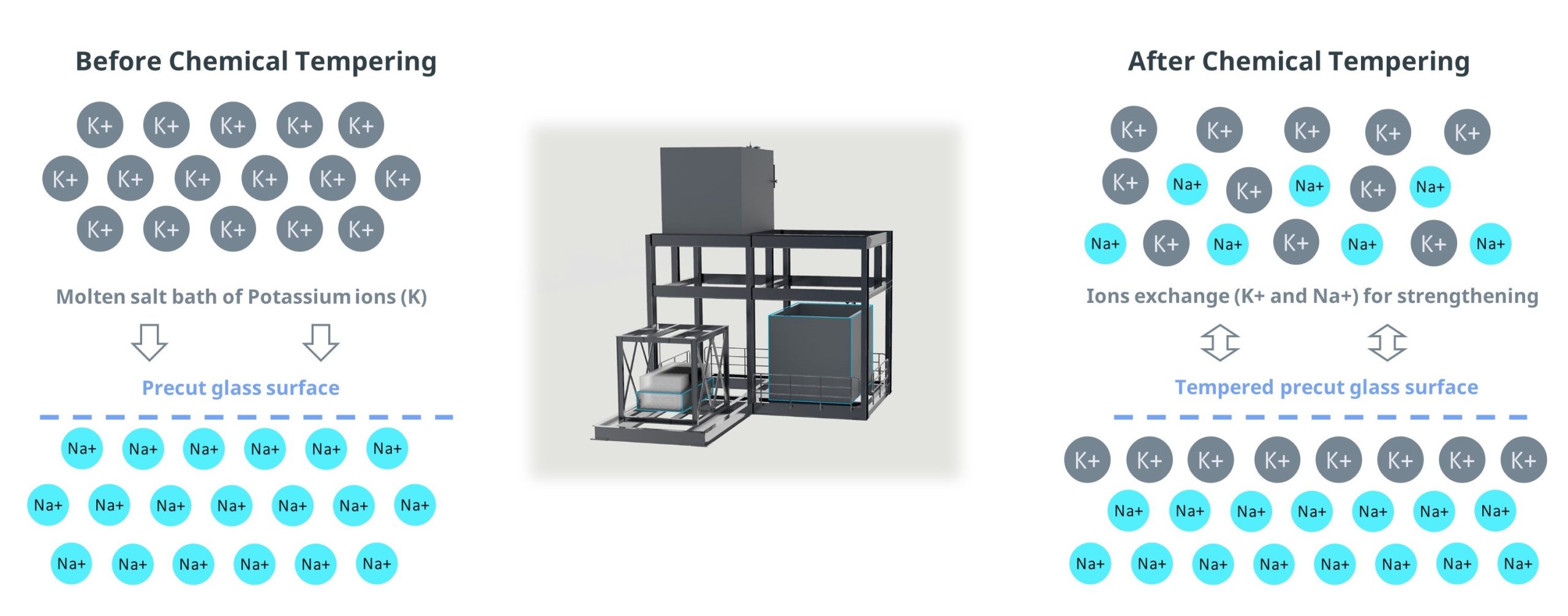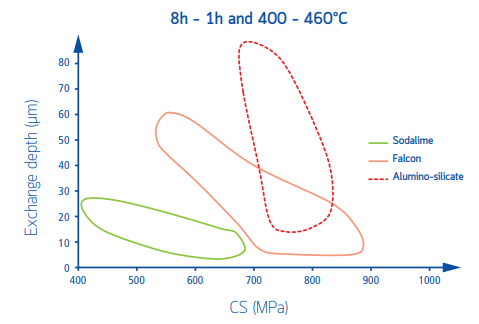The extensive usage of glass whether for commodity products or more specific applications makes it more sophisticated in terms of features, and consequently, widespread.
It becomes therefore necessary to make it long-lasting by implementing specific processes dedicated to glass, and more specifically, to ultra-thin glass. Indeed, for given uses, ultra-thin glass has to be reinforced to avoid breakage which can happen easily due its features: lightweight, thinness…
The strengthening process of glass is commonly used for traditional glass, however, different methods can be applied since they don’t have the same characteristics and cannot handle any type of process. Thus, it may not be convenient for ultra-thin glass to be thermally tempered since its thickness does not allow to support such high temperatures and aggressive transformation.
In a sense, much effort has been made to solve this issue due to a lack of technological solutions, and, as a result we witnessed the advent of an innovative process: chemical tempering.
FeelInGlass® has developed the Falcon™, a new glass composition based on alumino-silicate, that can be produced on a regular float process. This allows to use existing capabilities to produce an even wider range of products to serve multiple uses. In contrast to sodalime glass, Falcon™ glass has neutral aspect, and is available in several thicknesses form 0.5 mm to 2.1 mm. Consequently, such thinness requires an adapted chemical tempering, through ion exchange, to make it suitable for a wide array of applications.
The ion exchange consists in placing glass mother sheets in a molten salt bath at a temperature below the glass transition temperature. Then, the glass surface will be put in a compressive state via ion exchange, meaning that Potassium ions will be replacing smaller alkali ions during the soaking step. This results in a scratch resistance increase, new possibilities in terms of curving thanks to an enhanced radius (e.g. cold bending) and an incredibly tough surface.
Also, FeelInGlass®, through its processing capabilities, implements a dedicated process which allows Falcon™ gass to be laser cut without losing its strength reinforcement on the edges. As a result, our reinforced edges are resilient to handling and to further processing such as for e.g. display bonding , encapsulation with in-mod, bending…
This further process also values a significant aspect which is the straight edges that FeelInGlass® provides to for its Falcon™ glass applications. This is cost-effective for several reasons:
- No loose in strength on the edges after chemical tempering and laser cut
- No further additional step in the transformation process
- Enables edge-to-edge printing and other specific patterns through partial etching for example
As a whole, chemical tempering may seem to be a common practice to toughen ultra-thin glass, however the way steps are performed ahead and further the value chain are determining regarding the overall performance of the process, and the cost effectiveness of the final product.

